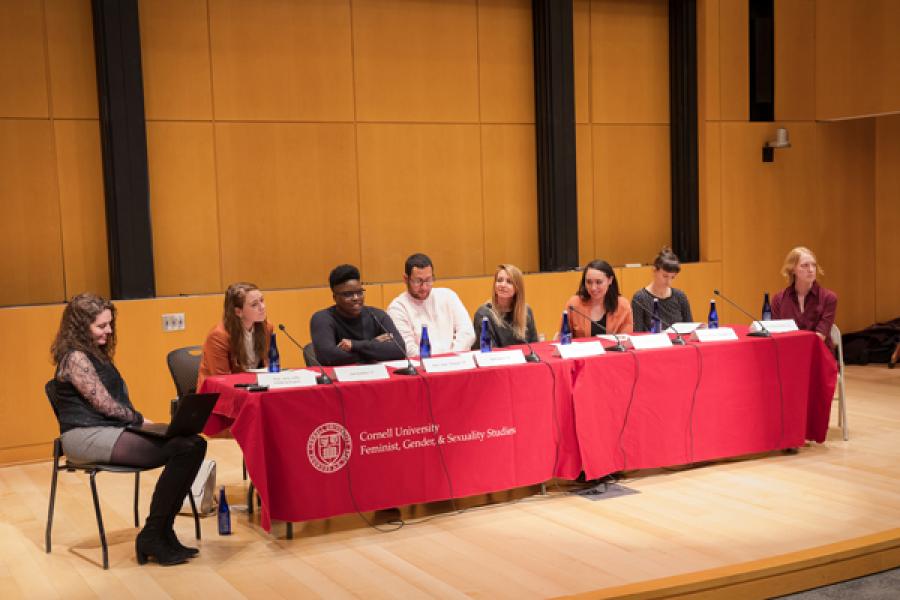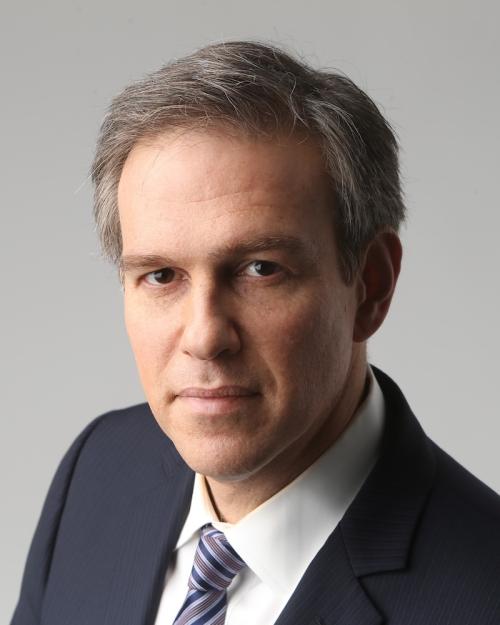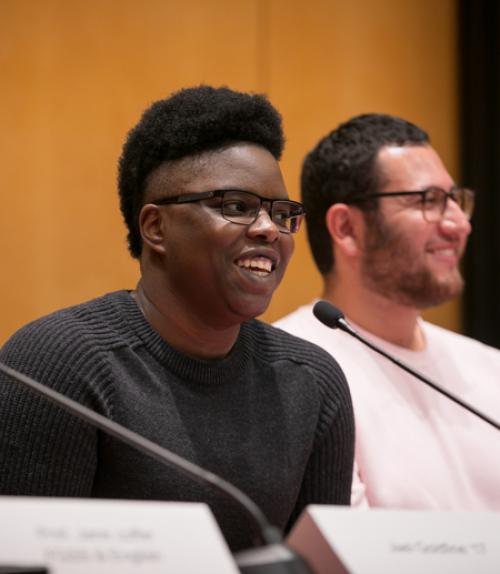Seven alumni with degrees in Feminist, Gender, & Sexuality Studies returned to campus March 8 for a panel discussion, sharing their stories of the varied career paths they’ve taken with their liberal arts majors.
“FGSS really carried with me into every single space I entered since I graduated,” said Nevena Pilipovic-Wengler ’13, currently a graduate student in urban planning at Harvard. Planning for her Cornell visit, Pilipovic-Wengler said she reviewed some of her FGSS class notes and found that she was learning some of the same things and discussing the same topics she’s focused on at Harvard.
“The knowledge you have at this age will be so relevant in your future,” she told students. “You are all definitely the radical leaders we need today.”
The panel discussion, “Feminism at Work,” was sponsored by the Feminist, Gender, & Sexuality Studies program, with support from the College of Arts & Sciences Becker Fund. It celebrated the 50th anniversary of the 1969 Cornell Conference on Women, an event attended by many feminist leaders of the day, which resulted in the first accredited women’s studies course, taught at Cornell that spring.
“It is a question we get a lot: what can I do with a degree in FGSS,” said Jane Juffer, professor of FGSS and English and director of undergraduate studies in FGSS. “We wanted this to be practical, but in a larger sense philosophical and ethical, to show the wide range of careers you can pursue in FGSS.”
The seven panelists have careers ranging from medicine to social work to journalism and although they are all young alumni – class years ranged from 2013 to 2017 – many of them have already tried out several different careers.
Sam Naimi ’16, a master’s of social work candidate at the University of Southern California, shared stories of working on the Ellen DeGeneres show as an intern and right out of college, then moving into celebrity press management, before “getting tired of the big personalities in Hollywood” and finding meaning in counseling teenagers and young adults.“My FGSS studies inform the types of therapies I use with these kids,” he said.
Jael Goldfine ’17, a culture writer at PAPER magazine, said she left a job in music publishing because it conflicted with her values.
“My gender studies degree plays into my life all of the time —how I relate to my colleagues, how I approach stories, how the theories I learned inform how I work,” she said.
Students peppered panelists with questions ranging from dealing with sexism at work to changing careers to employer reactions to their majors.
“I think of FGSS as something of a spirit guide at times,” said Kate Poor ’16, housing director at the Casa Marianella shelter for refugees in Austin, Texas. “It’s given me the philosophy of empathy and the undergirding principles of morality that I use in my life. I think of it as this real, beautiful, philosophical, artistic discipline and I don’t know why anyone would question why you study it.”
While the panel coincided with International Women’s Day and a heightened awareness of sexual discrimination, Juffer said the questions asked and panelists’ discussions showed there is still much work to be done.
“We wonder in the midst or slightly after MeToo, have things really changed in the workplace? What we hear is ‘well, sort of’ but it’s still an issue,” she said.





